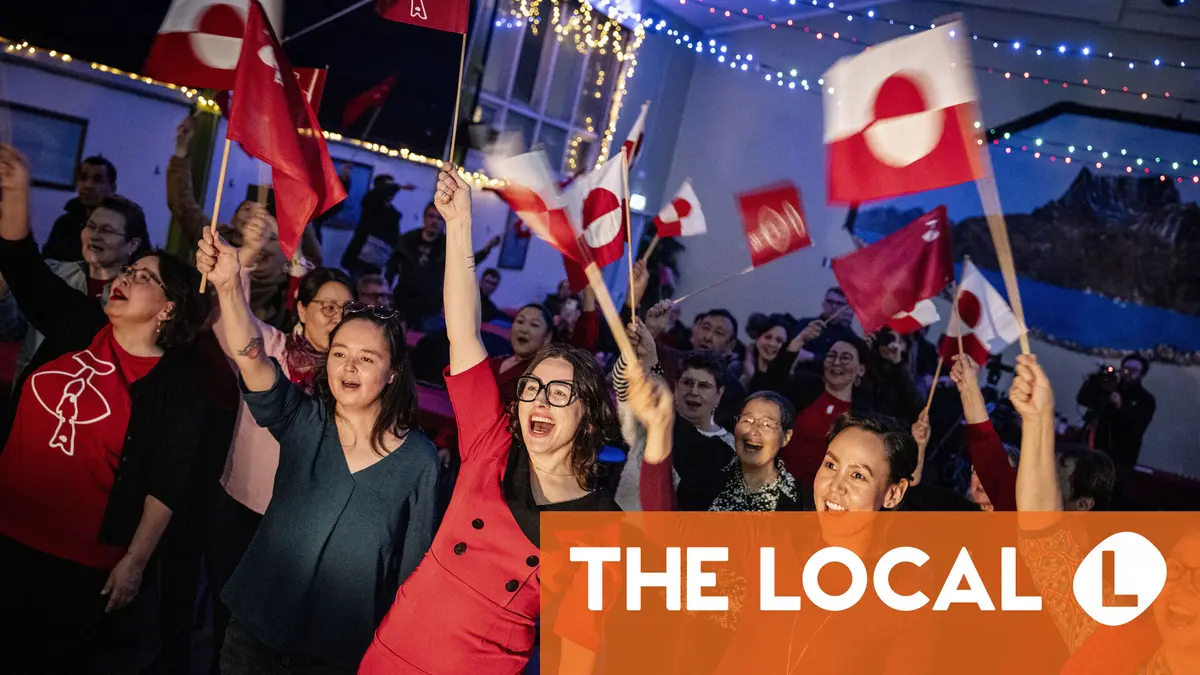Greenland’s centre-right opposition won a surprise victory in legislative elections on Tuesday. What does this mean for the country’s relationship with Denmark?
While the centre-right Democratic party more than tripled its score from the 2021 election to win 29.9 percent of votes, support also surged for the nationalist Naleraq party, which seeks independence as soon as possible.
The Democratic party describes itself as “social liberal” and has also called for independence but in the longer term.
As none of the parties won a majority of the 31 seats in parliament, negotiations to form a coalition will be held in the coming days.
READ ALSO: Greenland’s opposition gets surprise election win as nationalists surge
A Greenlandic election has never been followed more closely in Denmark than in 2025, Danish broadcaster DR’s political analyst Jens Ringberg said during a news programme.
That interest has largely focused on Naleraq, according to Ringberg.
“There has been enormous interest in how things would turn out specifically for Naleraq,” says Jens Ringberg.
The pro-independence party has made its mark in Greenlandic politics by advocating for a swift break from Denmark, he said.
Although Naleraq had a good election, more than doubling its share of the vote to 24.5 percent, the stable position of other parties will be welcomed in Copenhagen, according to the analyst.
“There will be relief that a number of parties – the traditional ones – have still received a significant share of the vote. They also want independence but prefer a gradual approach,” he said.
“And there will be relief that Naleraq didn’t win far more votes,” he added.
Advertisement
While the Democratic (Demokraatit) party has been named as the election winner, the centre’right group does not have an overall majority in the Greenlandic parliament, Inatsisartut. That means the party will need to negotiate with other groups to secure a deal for it to govern.
Aaja Chemnitz, who represents the IA () party, a traditional opponent of Demokraatit, told DR she sees cautious potential for cooperation between the two parties due to a need for stability.
“I think it’s too early to say, and as a member of the Folketing [Danish parliament, ed.], I don’t think it’s my place to interfere,” Chemnitz, who represents IA as one of the two Greenlandic lawmakers elected to the Danish parliament, told DR.
“There is still a need for stability, and IA is a guarantor of that,” Chemnitz said.
Advertisement
The left-wing IA (Inuit Ataqatigiit) supports gradual independence from Denmark while emphasising issues including social welfare and the environment. It has historically been a key player in the island’s politics.
Chemnitz said that voters in Greenland have gravitated toward parties that have been clear about their positions on independence, regardless of the specific position.
“There are many who support a policy of gaining independence quickly, but I also think a lot of people recognise that Demokraatit has been much clearer than some of the other major parties in stating a desire to slow things down a bit when it comes to independence,” she told DR.
In a written comment to DR, Prime Minister Mette Frederiksen said “the Danish government will await the outcome of the negotiations now taking place in Greenland.”
“But we look forward to working with Greenland’s next Naalakkersuisut [government]”, she added.
